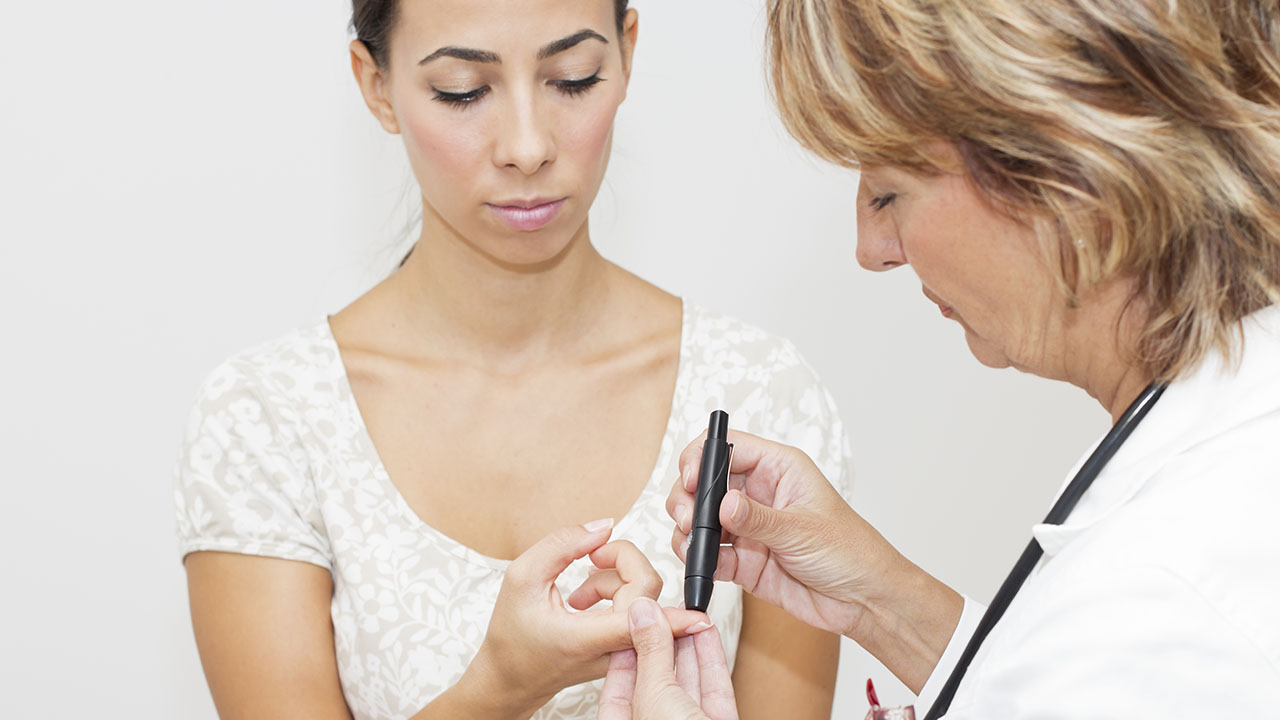Why do I need the glucose tolerance test (GTT) and what is gestational diabetes?


During pregnancy it is important to stick to regular checkups with your provider, who can help monitor your health as well as your baby's. During these appointments, your providers can watch for any signs of changes in health. One of the most common complications for a woman during pregnancy is gestational diabetes.
At your 28-week visit, a glucose tolerance screening is done to test for gestational diabetes. During this screening, your blood sugar is measured 1 hour after drinking a sugar drink. Women whose blood sugar is normal after 1 hour most likely don’t have gestational diabetes. Women whose blood sugar is high after 1 hour will then have a 3 hour GTT (glucose tolerance test) to determine if they have gestational diabetes. With the 3 hour GTT test, a woman will fast for 9 to 12 hours; her blood sugar is measured and then measured again 1, 2 and 3 hours after she drinks a sugar drink.
This form of diabetes does not mean you will have diabetes after giving birth; simply put it means that your body has high blood glucose levels. Gestational diabetes usually shows up around the 24th week of pregnancy and is harmless to the baby, if treated properly. After birth, blood sugar levels usually return to normal but there are risks of getting type 2 diabetes. Even though treatments are in place to monitor for gestational diabetes, its cause it still unclear to doctors. It is strongly encouraged you talk with your provider and keep an eye on your sugar levels throughout pregnancy.
If treated properly and quickly, gestational diabetes has a low threat to the baby. If treated poorly, a baby's glucose levels will be high, which can cause excess insulin which will put your baby at risk of obesity and raise their chance of getting type 2 diabetes as an adult.
The best way to monitor your glucose levels is by eating healthy foods and testing your glucose levels. To test your levels, the recommended times are:
Unfortunately, gestational diabetes does not have noticeable signs or symptoms for women to look for during their pregnancy. Keeping up with your regular checkups will help catch gestational diabetes before it can be a threat. Gestational diabetes does not have to be a scary disease that puts worry on you, with the right treatment and a full support system, you and your baby will live a very happy life.
At your 28-week visit, a glucose tolerance screening is done to test for gestational diabetes. During this screening, your blood sugar is measured 1 hour after drinking a sugar drink. Women whose blood sugar is normal after 1 hour most likely don’t have gestational diabetes. Women whose blood sugar is high after 1 hour will then have a 3 hour GTT (glucose tolerance test) to determine if they have gestational diabetes. With the 3 hour GTT test, a woman will fast for 9 to 12 hours; her blood sugar is measured and then measured again 1, 2 and 3 hours after she drinks a sugar drink.
This form of diabetes does not mean you will have diabetes after giving birth; simply put it means that your body has high blood glucose levels. Gestational diabetes usually shows up around the 24th week of pregnancy and is harmless to the baby, if treated properly. After birth, blood sugar levels usually return to normal but there are risks of getting type 2 diabetes. Even though treatments are in place to monitor for gestational diabetes, its cause it still unclear to doctors. It is strongly encouraged you talk with your provider and keep an eye on your sugar levels throughout pregnancy.
If treated properly and quickly, gestational diabetes has a low threat to the baby. If treated poorly, a baby's glucose levels will be high, which can cause excess insulin which will put your baby at risk of obesity and raise their chance of getting type 2 diabetes as an adult.
The best way to monitor your glucose levels is by eating healthy foods and testing your glucose levels. To test your levels, the recommended times are:
- Before a meal
- 1 hour after a meal
Unfortunately, gestational diabetes does not have noticeable signs or symptoms for women to look for during their pregnancy. Keeping up with your regular checkups will help catch gestational diabetes before it can be a threat. Gestational diabetes does not have to be a scary disease that puts worry on you, with the right treatment and a full support system, you and your baby will live a very happy life.



